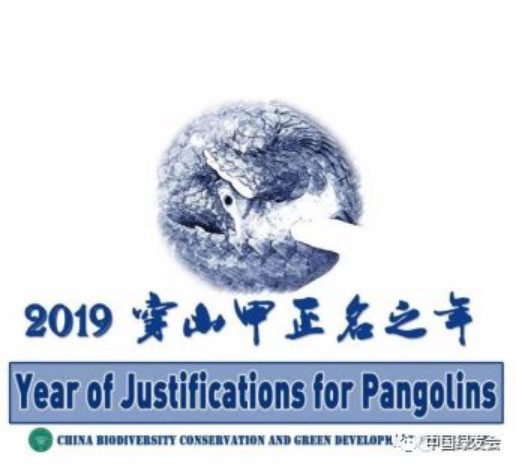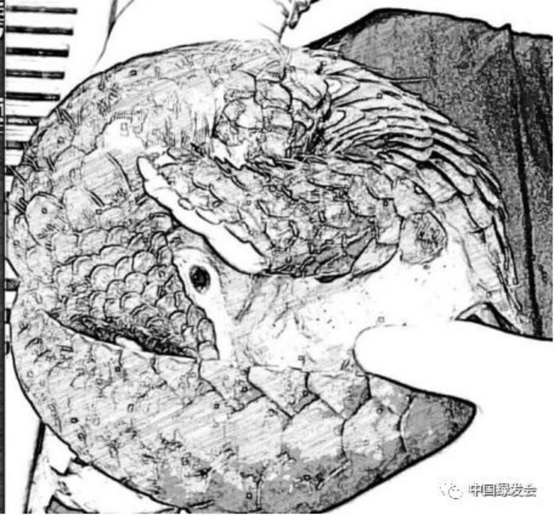2019 was the Year of Justifications for Pangolins. In order to strengthen the protection of Pangolins and combat the poaching, smuggling and trafficking of Pangolins, China is considering upgrading the protection of Pangolins from under state protection level II to state protection level I. At present, there are eight known species of pangolin in the world, including Chinese pangolin, Indian pangolin, Malayan pangolin, Philippine pangolin, great pangolin, tree pangolin, South African pangolin and long-tailed pangolin, which are distributed in tropical and subtropical regions of Asia and southern Africa.
Due to habitat destruction and severe poaching in history, the number of pangolins has continued to decrease; in September 2016, CITES listed all eight species of pangolins in Appendix I, completely prohibiting international trade. China has ceased all hunting and pangolin activities from the wild in 2007 and has completely stopped commercial imports of pangolins and their products from October 2018; China Customs has strengthened international law enforcement cooperation to carry out cross-border joint strikes. Since this year, 59.8 tons of pangolin scales have been seized. Through the efforts of all parties, the critically endangered state of the Chinese pangolin is gradually achieving a turnaround. However, the mischievous people have quietly turned their attention to the "African pangolin".
Not long ago, CBCGDF received a clue from volunteers that many companies such as Anguo Juyaotang Pharmaceutical Co., Ltd. and Hebei Quantai Pharmaceutical Co., Ltd. in Hebei Province are selling and using wild animals under national protection products Manis gigantea scales and Manis tricuspis scales. CBCGDF attached great importance to this situation, and immediately applied to relevant departments for government information disclosure and received feedback one after another.
CBCGDF learned that the Hebei Provincial Forestry and Grassland Bureau had made an administrative license and decided to approve separately, and agreed that Sinopharm Lerentang Hebei Pharmaceutical Co., Ltd., Hebei Quantai Pharmaceutical Co., Ltd., and Anguo Juyaotang Pharmaceutical Co., Ltd. use and sell scales of Manis gigantea and Manis tricuspis in the Appendix I of CITES to produce vinegar pangolin, liyanling tablets and Chinese herbal medicines.
In 1981, China acceded to the Convention on International Trade in Endangered Species of Wild Fauna and Flora (CITES), bringing over-exploitation of fauna and flora through international trade under surveillance. According to Article 35 of the Wildlife Protection Act Regulations, and in conjunction with the “National List of Key Protected Wild Animals” and the “Notice of the Ministry of Forestry on Approving Some Endangered Wild Animals as Key National Protected Wild Animals” issued by the former Ministry of Forestry, Manis gigantea and Manis tricuspis are included in Appendix I of CITES, not the pangolins originating in China should be treated according to the state-level key wildlife protection, and the same protection should be implemented. Their scales are wild animal products that are prohibited from sale, purchase, and utilization by the state. In addition, according to the "Pharmacopoeia of the People's Republic of China", the pangolin products approved for medicine in our country are only Manis pentadactyla scales. The Manis gigantea and Manis tricuspis and the Chinese pangolins involved in the above license are different species under the same animal subject. It is not a legal exception under the drug administration law to make pangolin tablets. In summary, the above-mentioned administrative licensing contents of the Hebei Forestry and Grassland Bureau involve violations of the mandatory provisions of the Wild Animal Protection Law and the Drug Administration Law, and the decision of administrative licensing is illegal.
According to the provisions of Article 34 of the Wildlife Protection Law, the wildlife protection authority of the people's government at or above the county level shall supervise and manage the use of wild animals and their products such as scientific research, artificial breeding, and public exhibitions. Hebei Forestry and Grassland Bureau, as the local wildlife protection authority, has strict supervision responsibilities for the use of Manis gigantea and Manis tricuspis. In the case where the matters applied for by Juyaotang Pharmaceutical, Lerentang Pharmaceutical, and Quantai Pharmaceutical are suspected of being illegal, the Hebei Forestry and Grassland Bureau has not established "to adhere to the strictest system and the strictest rule of law to protect the ecological environment”, doesn’t fulfill the concept of “the duties of supervision and management according to law”, resulting in an administrative license for illegal content.
In addition, the "African pangolin" and its products, such as the Manis gigantea and Manis tricuspis involved in this case, did not originate from China. It is conceivable that such administrative licenses will directly lead to the illegal sale and utilization that are prohibited by international conventions. The Hebei Forestry and Grassland Bureau, as the main body of supervision, is legally responsible for the conduct of illegal results caused by regulatory loopholes. Such administrative licenses will certainly promote the illegal demand and bad attempts of African pangolin scales, which will cause the loss of national and international ecological resources and biodiversity, and seriously hinder the process of ecological civilization.
The environmental public interest litigation prescribed in article 58 of the Environmental Protection Law should include civil public interest litigation and administrative public interest litigation. However, so far, there is still a lack of cases in which social organizations have filed administrative public interest litigation as a category of environmental administrative public interest litigation and finally made a judgment. Combining the provisions of Article 25 of the Administrative Procedure Law and Article 12 of the newly revised Interpretation of the Supreme People ’s Court on the Application of the Administrative Procedure Law of the People ’s Republic of China, social organizations such as CBCGDF is a qualified plaintiff under the law. If the prosecution can be successfully filed, it will greatly reverse the current difficult situation of social organizations in filing environmental public interest litigation, which is of great significance for creating a good legal environment for public interest litigation, safeguarding the public interests of society, and building a Beautiful China.


(Photo credit: CBCGDF)
Original Chinese article:
https://mp.weixin.qq.com/s/IopOFsvUmWeSxtGNAT5M6A
By / Maggie
